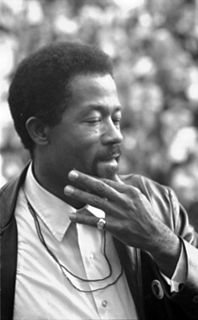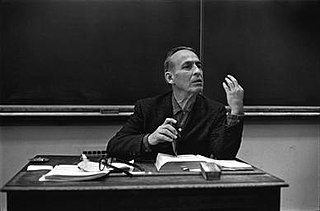A Quote by Adrian McKinty
I love the trilogy form. I like the idea that you can establish a character in book one. And then in the second part, you can take the characters down to their darkest point. And then in the third part, you have total freedom either to give them redemption - or just to kill them.
Related Quotes
I always talk about shooting being broken down into three things. You have to have some semblance of good form. The second part is repetition: doing things over and over again until you really develop a skillset. And then the third part is confidence. But for me, you can't have confidence without having that second part.
Sometimes I'll be fifty, sixty pages into something and I'll still be calling a character "X." I don't have a very clear idea of who the characters are until they start talking. Then I start to love them. By the time I finish the book, I love them so much that I want to stay with them. I don't want to leave them ever.
For the most part, my characters don't talk to me. I like to lord over them like some kind of benevolent deity. And, for the most part, my characters go along with it. I write intense character sketches and long, play-like conversations between me and them, but they stay out of the book writing itself.
What I do is give Ennio Morricone suggestions and describe to him my characters, and then, quite often, he'll possibly write five themes for one character. And five themes for another. And then I'll take one piece of one of them and put it with a piece of another one for that character or take another theme from another character and move it into this character.... And when I have my characters finally dressed, then he composes.
Question four: What book would you give to every child? Answer: I wouldn't give them a book. Books are part of the problem: this strange belief that a tree has nothing to say until it is murdered, its flesh pulped, and then (human) people stain this flesh with words. I would take children outside and put them face to face with chipmunks, dragonflies, tadpoles, hummingbirds, stones, rivers, trees, crawdads. That said, if you're going to force me to give them a book, it would be The Wind In The Willows, which I hope would remind them to go outside.
you can't kill love. you can't even kill it with hate. you can kill in-love, and loving, and even loveliness. you can kill them all, or numb them into dense, leaden regret, but you can't kill love itself. love is the passionate search for a truth other than your own; and once you feel it, honestly and completely, love is forever. every act of love, every moment of the heart reaching out, is a part of the universal good: it's a part of God, or what we call God, and it can never die.
If people ever look down upon you for crying for fictional characters, you should give them a gentle, pitying look and feel bad for them. If they've never cried for a fictional character, then they've never loved one (and what a joy that is). If they've never cried at a book, a movie, a piece of music, then they've missed one of the great pleasures life has to offer. Just because fiction does not contain things that are real doesn't mean it doesn't contain truth, and we find it through the alchemy of our tears.
Food is one part. Love is another part. I cut their hair, I give them a shave, I give them bath. For them, to feel psychologically that they are also human beings, there are people to care for them, they have a hand to hold, hope to live. So, the food will give them physical nutrition. The love and affection which you show, will give them mental nutrition.
When you love someone, truly love them, you lay your heart open to them. You give them a part of yourself that you give to no one else, and you let them inside a part of you that only they can hurt-you literally hand them the razor with a map of where to cut deepest and most painfully on your heart and soul. And when they do strike, it’s crippling-like having your heart carved out.
The worst part is that if you become part of a major - all these independent labels become farm teams for your corporate parent. Basically, you do all the work for years, blowing up an artist - you discover them, blow them up, you build their fan base. And then that artist is like, "Okay, now I'm here. Now I want more. I want to be bigger." And you're either going to be able to accommodate them, you're going to be able to figure out how to take that step with them, or you're going to lose them.





































